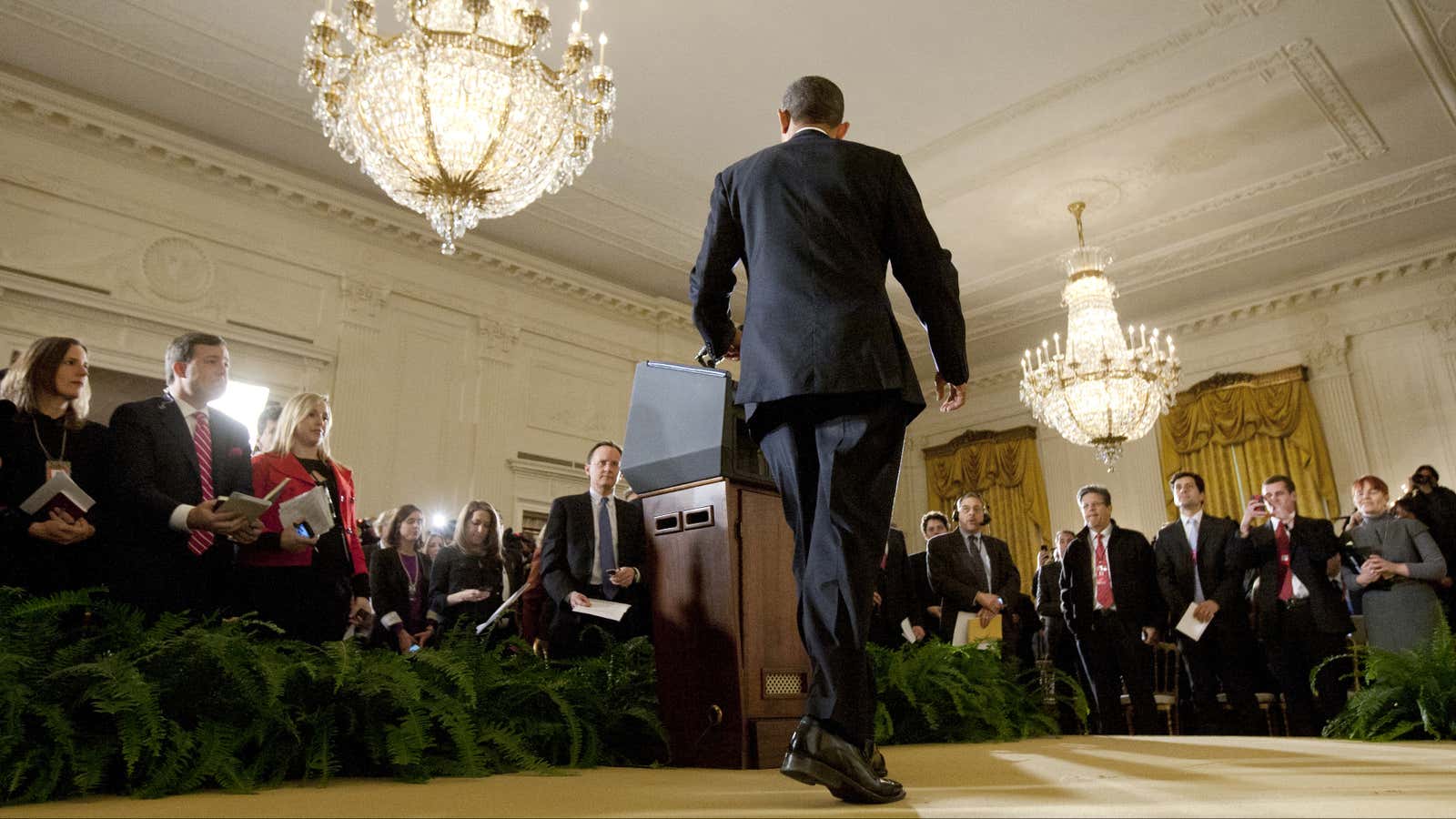At Barack Obama’s first post-election news conference, the US president triaged his second term economic priorities in between questions about national security and scandals:
1. Avoiding the fiscal cliff
The recipe for instant austerity must be averted, Obama said, and he would gladly sign a bill extending tax cuts for all Americans except the wealthy. That could even be done this month to create certainty and limit the biggest immediate impacts on the economy.
This would be linked to discussions about tax and social insurance reform, along with more cuts to discretionary spending. This is part and parcel of the most likely deal between the two sides, which depends on the impending tax increase and a willingness to keep marginal tax rates low while raising more revenue. While Republicans have conceded the need for more revenue, many remain opposed to supporting the expiration of lower tax rates for families making more than $250,000 a year.
2. Fixing America’s immigration policy
The president told reporters he would introduce legislation for comprehensive immigration reform around the time of his inauguration in late January. The offer would be similar to past immigration reform efforts—perhaps he’s referring to McCain-Kennedy?—in combining changes in border security, rules about immigrant workers, and a path to citizenship for immigrants remaining in the US.
Obama also mentioned the importance of fixing visa policies that keep highly skilled workers out of the country. Economists think that such legislation, properly done, could spur growth.
3. Climate change policies come last
With Obama’s impending visit to New York City, where Mayor Mike Bloomberg endorsed him because of his recognition of climate change, a reporter asked if a carbon tax or other climate change policy might be part of his approach. While the president made the case for doing more on climate change and noted improvements in auto efficiency during his first term, he also made clear that any kind of climate change policy would need to be linked to job growth and pass through a Congress that is more divided than usual on the issue. Perhaps he was remembering the Democratic carbon cap-and-trade bill that died early in his first term.
Primary source: Here’s a transcript of the press conference.
